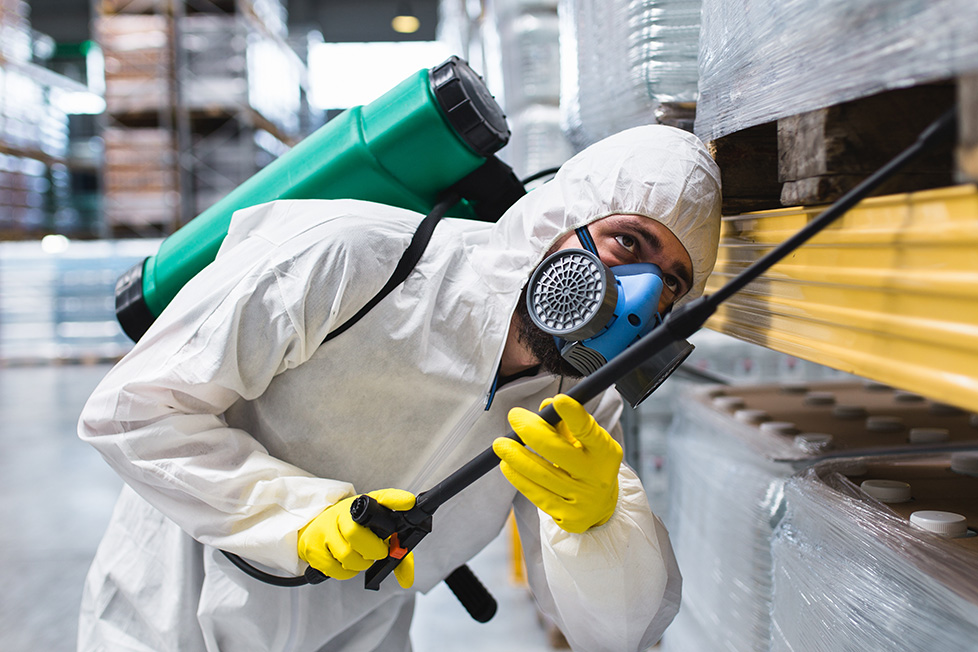Maintaining a neat and orderly house is crucial not just for your physical health but also for effective the management of pests. Many people underestimate the significant link between their home’s cleanliness and the existence of household pests. Dirt, debris, and unkempt environments create a suitable environment for frequent domestic pests, making it crucial to focus on hygiene in your your pest avoidance strategy. By grasping how cleanliness affects pest management, you can take proactive steps to ensure your home void of invasive species throughout the year.
In this detailed resource, we will investigate various facets of pest control and hygiene. Beginning with the identification of frequent pests such as spiders and bedbugs to debunking widespread misconceptions about do-it-yourself solutions, we will offer the reader with the best reference for establishing a environment free from pests setting. You will find out the significance of how crucial routine pest checks, how often to schedule expert interventions, and effective strategies for every period to guarantee your home stays protected. Regardless of whether you are dealing with problems with mice in winter and mosquitoes during summer time, maintained home will significantly enhance your pest control strategies and safeguard the health of your family.
Comprehending the Relationship Between Hygiene and Bug Control
Keeping high levels of sanitation in your home is important in preventing bug infestations. Filthy areas draw various vermin, including rodents, insects, and other unwanted animals that flourish in unhygienic environments. Food debris, spills, and clutter provide ideal breeding grounds for vermin, making it necessary to keep kitchens and dining areas tidy. Regularly brooming, wiping, and sanitizing surfaces can significantly minimize the attractiveness of your residence to intrusive species.
Furthermore, proper waste management plays pivotal role in pest control. Keeping garbage in closed containers, disposing of waste frequently, and ensuring that your garbage bins are well-maintained can discourage bugs from being drawn to your home. Additionally, outdoor areas require similar attention; overgrown vegetation and stagnant water can create inviting environments for bugs. By maintaining tidiness in both indoor and outdoor spaces, homeowners can establish a deterring atmosphere for undesired critters.
Recognizing the relationship between sanitation and pest control also involves identifying the signs of infestations early. Regular inspections for common household pests can prevent small issues from escalating into significant infestations. When your home is clean and well-maintained, it's simpler to spot the early warning signs of pests, such as droppings or signs of damage. Ultimately, a well-maintained residence not only promotes good health but also serves as a formidable barrier against bug control problems.

Effective Methods for All-Year Pest Prevention
Keeping a pest-free house requires constant vigilance and proactive measures throughout the year. One of the most effective strategies for pest control is to ensure proper sanitation. Routine cleaning, including vacuuming and wiping down surfaces, helps remove food particles and spills that attract pests. Ensure that trash is thrown away properly and that any pet food is sealed and stored away when not in use. Establishing a clean environment makes your house less appealing to ordinary household pests.
Another important aspect of pest prevention is blocking entry points. Inspect your residence for cracks, breaks, and holes in exterior walls, window frames, and doors. Even the most minor openings can serve as pathways for pests like rodents and insects. Use sealant, weather barrier, and other materials to secure these vulnerabilities effectively. By strengthening your house's defenses against unwanted visitors, you can significantly minimize the likelihood of invasions throughout the year.
In conclusion, regular inspections and professional pest control services should be part of your preemptive strategy. Scheduling periodic inspections can help discover potential pest issues before they become severe. Professionals have the knowledge and tools to find signs of pests that might go overlooked. Moreover, utilizing seasonal pest control treatments can preemptively address specific pest threats connected to each season, ensuring that your home remains protected all year long.
Widespread Misconceptions Concerning Pest Control Dispelled
One common myth is that maintaining a clean home will entirely eliminate pests. Even though good hygiene certainly helps reduce the risk of infestations, it is not a guaranteed solution. Pests can enter homes through minuscule cracks and crevices, looking for shelter and food. Therefore, depending solely on cleanliness can result in complacency and ultimately invite unwanted visitors. Regular inspections and preventative measures are crucial to genuinely keep your home pest-free throughout the year.
An additional misconception is that DIY pest control methods are as effective as professional services. you could try these out underestimate the complexities of pest behavior and treatment options. DIY approaches frequently fail because they do not solve the root causes of infestations or the distinct needs of different pests. Experts are trained to identify the source of the problem and apply focused solutions that ensure sustainable results.
Lastly, there is a belief that all pests are harmless and do not pose major threats to health or property. This is far from true. Pests like cockroaches and rodents can transmit diseases, while termites can cause extensive structural damage to a home. Understanding the dangers associated with pests is vital for effective prevention. By debunking these myths, homeowners can make informed decisions about pest control and maintain a safer living environment.
